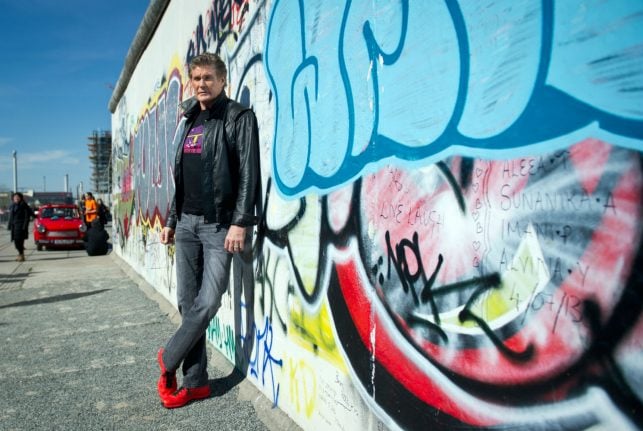Not for the first time, the former Baywatch star has tried to set the record straight on his role in putting an end to communist rule in East Germany, after persistent rumours that he believes he played a part in the end of communism in 1989 have failed to go away.
“I never had anything to do with it and I never said that. Never. This lie is still being spread 30 years later,” Hasselhoff told the German Press Agency in comments published on Thursday.
According to the legend, Hasselhoff has convinced himself that the concert he gave at the Brandenburg Gate in 1989, during which he sang his hit song Looking for Freedom, inspired the people of the east to rebel against their communist rulers.
In fact, Hasselhoff gave the concert at a New Year’s Eve party several weeks after the fall of the wall. It has however become one of the most enduring images of that momentous period due to the emotional scene of Berliners falling into one another’s arms as he sang.
“I sang a song about freedom, which happened to be number one in the charts when the wall fell. Did I make use of the song? Yes, because it affected me deeply,” he said.
In April Hasselhoff will start his “30 years of Looking for Freedom” tour through Germany and Austria – tickets are already selling well.



 Please whitelist us to continue reading.
Please whitelist us to continue reading.